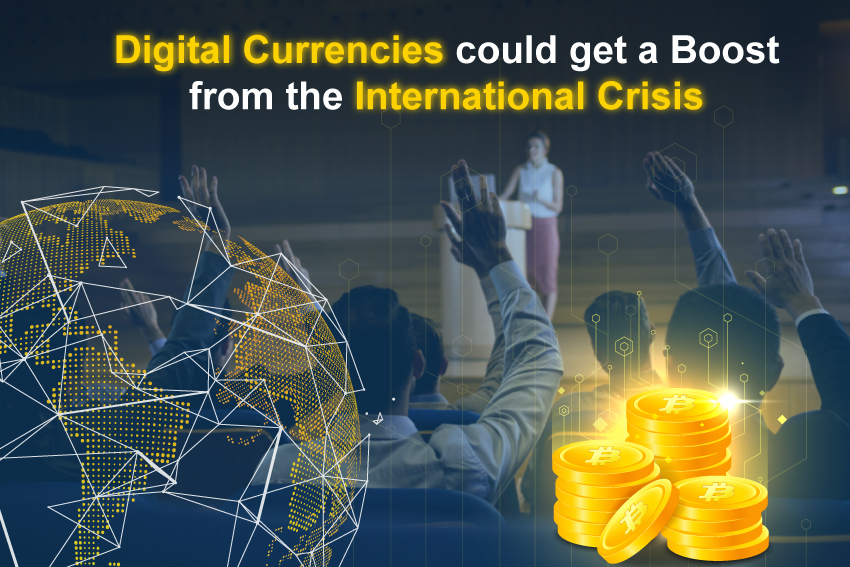
As per the latest update the current crisis, along with rising inflation, according to BlackRock’s CEO, will lead to the development of a global digital payment network.
In the latest move, the Biden administration imposed new sanctions on Russia in response to the situation in Ukraine, with the goal of limiting Russia’s access to foreign cash. Experts say Russian firms are planning to mitigate the worst effects by striking arrangements with anyone willing to work with them wherever in the world.
They claim that these entities can then employ digital currencies to circumvent government control points, such as bank transfers, to prevent contract implementation.
The ongoing Russia-Ukraine crisis, according to Larry Fink, has bolstered the argument for digital currencies as a means of international resolution.
The Russian government is working on its own central bank digital currency, dubbed the “digital ruble,” which it aims to use to deal directly with foreign countries who will accept it without first converting it to dollars. Russian agents could use hacking techniques like ransomware to steal digital currencies and recoup revenue lost due to sanctions.
While cryptocurrency transactions are visible because they are recorded on the blockchain, new techniques developed in Russia can assist in hiding the origin of such transactions. This would enable corporations to conduct business with Russian entities without being detected.
Fink stated that the prolonged struggle would push countries to reconsider their currency reliance, perhaps paving the way for a worldwide digital payment network. He claimed that the conflict pause the forces of globalization that have been active for the past 30 years.
Fink’s prediction about the rise of the digital market is dead on, as trade restrictions against Russia have already prompted several countries that purchase oil and gas from the country to explore alternatives to the centralized SWIFT system.
India is allegedly working on a direct INR payment channel for energy purchases, and talk of a digital payment network is gaining traction.
“A well-designed global digital payment system can improve international transaction settlement while lowering the danger of laundering and corruption,” Fink noted.
According to Yaya Fanusie, a fellow who has investigated the effects of cryptocurrency on sanctions, the growing system of central banks directly exchanging digital currencies raises new vulnerabilities.
“The weakening of US sanctions is due to a mechanism that allows these countries to conduct transactions outside of the global banking system.”
The volume of local Bitcoin trading in Russia increased in March after a year of steady decline. Prior to the invasion of Ukraine, however, the country was attempting to properly regulate the bitcoin industry.
Even as the ECB reiterates its threat of sanctions
After receiving millions in crypto assistance from around the world, Ukraine legalized cryptocurrency on March 16, 2022. The war-torn country has already raised more than
$100 million in cryptocurrency donations, which it has used to bolster its army and purchase supplies.
The expanding ransomware industry seems to be centered in Russia. According to a latest report by blockchain-tracking firm Chainalysis, nearly 74 percent of global ransomware revenue, or more than $400 million in cryptocurrencies, went to businesses that are likely related to Russia in some way.
Cryptocurrencies have proved to be a fantastic barrier against turbulent times over the years, but with the current crisis in Ukraine, it has emerged as a key tool for international tensed settlements and speedy relief.



Comments (No)